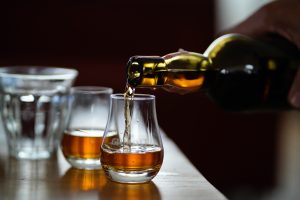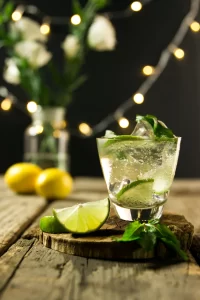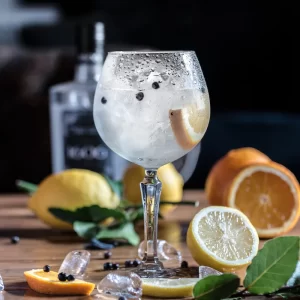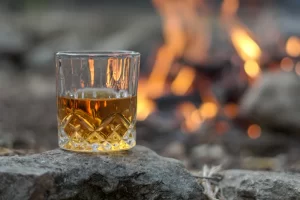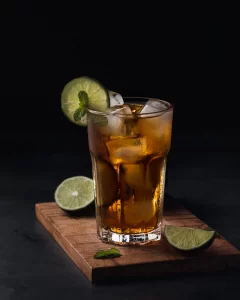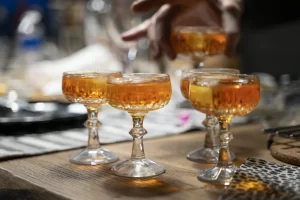South Carolina Liquor Laws And Regulations
As you may expect, the legal age to consume alcohol, and buy it, is 21 years in South Carolina. However, to serve drinks that are consumed on-site, an individual only has to be 18 years old.
Then, to tend the bar, an individual has to be at least 21 years old. The liquor laws and regulations in South Carolina can be confusing, especially when you realize that there is a three-year difference between serving the drinks and creating them.
In this guide, we will detail the liquor laws and regulations in South Carolina. This will include selling alcohol, the operating hours for serving alcohol, and furnishing alcohol.
We will also look at using a fake ID, the licensing requirements/distillery restrictions, and the three-tier distribution system that operates in the state.
Selling Alcohol In South Carolina
Should a licensee in South Carolina knowingly sell alcohol to a minor, or allow the alcohol to be sold to one, then that is an offense that comes with huge penalties.
That licensee could be suspended or have their license revoked automatically. This occurs with a guilty plea, a conviction, a plea of nolo contendere (where there is an acceptance of the conviction but the individual does not plead nor admit their guilt), or a forfeiture of the bond.
Rather than the license being involved, there is an alternative of a fine being issued. For a first offense, either the license is revoked for a full year or the licensee has to pay a fine of $250.
The penalties effectively double up for a second offense to the license being suspended for two years and a $500 fine being paid.
There are also penalties if a clerk knowingly sells alcohol to an individual who is yet to reach the age of 18. For a first offense, the clerk can expect a mandatory fine between $200 and $300.
The judge’s discretion is key between only a fine being issued or 30 days in jail being added. For a second offense, the fine goes up to between $400 and $500 and a 30-day prison sentence can be added too.
Operating Hours For Serving Alcohol In South Carolina
While beer and wine can be bought or sold in a grocery or convenience store 24 hours a day in South Carolina (except on Sunday), the operating hours at a bar or restaurant do vary.
You can be served an alcoholic beverage in such an establishment between 10am and 2am from Monday through Friday. On Saturday, there is an 11.59pm curfew on the sale of alcoholic beverages.
Some counties do allow for the sale of alcoholic beverages on Sundays but this has to be agreed upon with the county or municipal ordinances. Liquor stores in South Carolina may be open between 9am to 7pm from Monday through Saturday.
Furnishing Alcohol In South Carolina
Any individual who allows underage drinking to occur on their property, with their own alcohol being possessed or consumed by minors, is committing an offense in South Carolina.
The penalties for the offense are identical to those of a clerk serving alcohol to minors though there are exceptions. These exceptions include a parent or guardian giving alcohol to their child if they are under the age of 21 and in their own home.
Religious ceremonies also count as an exception, as are students over the age of 18 who have to test alcohol in the form of a culinary course.
Using A Fake ID In South Carolina

It is clearly a misdemeanor for anyone under the age of 21 to purchase, or even try to purchase, alcohol. That could be a fermented or malted beverage, beer, porter, ale, or wine.
Falsely representing your age to buy alcohol can result in a fine between $100 and $200. The offense could also come with a 30-day prison sentence and any violator has to complete an approved education program in alcohol prevention.
The program has to be at least eight hours in duration and can cost $150.
Licensing Requirements/Distillery Restrictions
A liquor license can cost between $300 and $1,000 in the state of South Carolina. A tiered pricing structure does exist based on the population of the city where the license is based so that is worth bearing in mind.
For in-state micro-distilleries, anyone that blends, distills, and bottles alcohol with an ABV above 17% is required to have a license and the fee costs $200 which is the same cost as a restaurant, hotel, or motel selling liquor by the drink.
However, for a brewery or an in-state winery, the process is similar and the license fee stands at $300.
The Three-Tier Distribution System In South Carolina
As the system which regulates the alcohol industry in the country, South Carolina operates under a three-tier distribution system. This creates a clear understanding for the rules that govern liquor distribution between retailers, wholesalers, as well as manufacturers/importers.
Beer and wine are also covered separately than liquor which is worth remembering. The alcohol licenses differ for each distinction; from those who want to sell alcohol to the public, to those selling it to retailers, and those producing or importing it.
Final Thoughts
There are some basic rules for the liquor laws and regulations in the state of South Carolina, one is that beer and wine are treated differently from liquor. Should you visit the state, it is worth making a note of the laws in the area as they do vary by county.
You also cannot buy liquor from gas stations in the state, it can only be purchased at licensed liquor stores. If you only want a beer or bottle of wine then grocery or convenience stores are your best bet.
Frequently Asked Questions
What Is The Name For Liquor Stores In South Carolina?
If you do visit South Carolina, you may have to ask for a ‘red dot store’ when you want to buy some liquor. The name relates to the fact that most Palmetto State liquor stores had three red dots on their signs.
As this is where a lot of liquor was sold, it was easier to identify them via the three red dots.
Can You Enjoy Free Pours In The State Of South Carolina?
Up until 2006, bars and restaurants were required to use mini liquor bottles to sell liquor. However, this requirement was lifted and the free pouring of liquor was also legalized at the same time.
